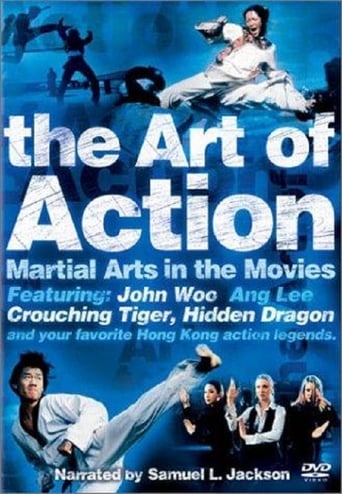

A look at the history of martial arts films from their Chinese roots to the present, presented by Samuel L. Jackson.First of all, I love the connection between martial arts and the films of Harold Lloyd and Buster Keaton. There is definitely a slapstick element that runs through these films, and to see that there were some direct homages really warms my heart.Speaking more broadly, this is an excellent primer. Really being exposed to film in the 1990s, the influx of "kung fu" into mainstream film happened without context. It was not until much later that I learned about the Shaw Brothers and any of that history. The martial arts genre is so huge that it is hard to know here to begin, but this documentary makes a great road map for those just getting on the highway.
... View MoreThis documentary uses the term "martial arts" very loosely, as the main focus is on the Chinese martial art kung fu (with only a small part dedicated to Japanese director Akira Kurosawa,) while some major stars from karate and muay thai movies (specifically, Sonny Chiba and Tony Jaa) are not mentioned whatsoever. However, kung fu has been the prevailing martial art in cinema, and the main point seems to be a historical progression from the origin of martial arts movies to their use in today's American films. So, because the emphasis is on telling the story of how The Matrix and Face/Off (and more ridiculously, Charlie's Angels and Exit Wounds) came to use "martial arts", the gaps in history are forgivable. This incidentally also makes Samuel Jackson a fairly perfect narrator. The documentary progresses mainly through segments on each major kung fu icon in the history of cinema, and gives a fairly basic overview. If you have any prior knowledge of the history, there may not be a lot of information you don't already know. Also, John Woo gets his own segment in which he is called a "serious filmmaker." Please ignore this. While John Woo movies can be fun, he has no business being talked about in a movie about martial arts. Basically, if you're an American who wants to understand the history of kung fu in movies, or if you're wondering if there's any job Samuel L. Jackson won't say yes to, this doc is definitely worth checking out.
... View MoreObviously made for an American audience who are just discovering martial arts films. Any experienced fan will like the archive footage but wonder why Crouching Tiger features so heavily and so many other seminal films are missing or barely mentioned. I'm also curious why in such a high quality production, some films, such as Jackie Chan's Drunken Master look like they were taped off a TV. The footage of the Shaw's Studio was fascinating as were the interviews, especially by Raymond Chow on Bruce Lee. But Tsui Hark features too much and Steven Seagal is interviewed but none of his films are even mentioned, nor van Damme. So like the proverbial curate's egg, good in bits but could have been so much better.
... View MoreSamuel L. Jackson is the perfect host/narrator for this well done look at how martial arts movies began and progressed. There is plenty of footage from the silent era to 2000 put into context by interviews with Chinese directors, actors and producers. Jackson introduces and explains the various periods and sub-genres, paying special attention to the most important individuals including Bruce Lee, John Woo, Ang Lee plus others whose names will be immediately familiar only to fans of Chinese cinema from the 1950s.Of particular note is the way the narration links two of the most important influences on martial arts film--Beijing Opera and the destruction of the Shaolin Temple by the Manchu dynasty along with the traditional stories around that destruction.
... View More